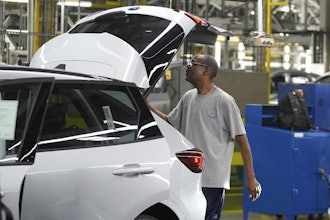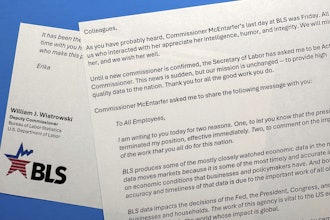
Certainly one of the biggest trends seen among our 2016 Big 50 list of industrial distributors is the continuation of mergers and acquisitions — a trend that has been hot for several years and apparently will continue for many more.
But there has been a change in acquisition strategy.
For several years, distributors often bought competitors that carried the same product lines, giving the acquirer access to some new suppliers, expanded geography and new customers. Today, many distributors are buying others that carry complementary product lines, allowing them to gain access to new customers, cross sell products and expand market share.
Some larger distributors also say that with the industrial products economy stuck in a sharp downturn, M&A activity will increase. One CEO said that pressure will be put on smaller distributors who will not be able to keep as much inventory on hand as they have in the past. This could mean that larger distributors will be able to pay lower prices for companies and access to new customers.
Regardless of whether that comes to fruition, M&A activity is soaring particularly as larger distributors buy companies outside their traditional product offerings. DXP Enterprises, a company well-known for its pumping solutions and supply chain expertise, last year purchased Tool Supply in an acquisition that brought a high level of technical expertise within cutting tools and a unique business model.
We’ve seen companies like WESCO International, known years ago primarily as an electrical distributor, buying a safety distributor. Airgas, now owned by Air Liquide, has made more than 450 acquisitions since 1986, primarily small welding distributors, but has recently purchased safety equipment distributors as well.
Genuine Parts Company’s (GPC) industrial business, Motion Industries and office supply segment S.P. Richards purchased Rochester Midland Corp., a janitorial/sanitary supply business. GPC most recently purchased The Safety Zone, a direct importer and distributor of supplies and devices for safety, janitorial, medical, food service and food processing applications.
“Some of the new product category focus that we have gotten into in recent years — products like industrial supply, safety supply, material handling equipment — are performing well and are generating increases year-over-year,” said GPC’s CEO Paul Donahue.
One surprise was Fastenal, which traditionally grew its business by opening stores at a rapid pace. Last October it purchased Fasteners Inc., a regional distributor of industrial and construction supplies. It is believed to be only the second distributor purchase that Fastenal has made in the past five years. Known as a construction/industrial MRO supplier, Fastenal has also moved into the metalworking area, pitting itself against some companies such as MSC Industrial. MSC and Fastenal are also two of the leaders in the industrial vending business.
Fastenal also has an interesting new agreement with Walmart, with a locker service designed to store online purchases from retailers at a number of Walmart sites. Shoppers who use the locker service will be notified when and where their item arrives and use an access code to open the locker. Walmart will store the items for about two weeks after delivery.
Large Retailers Targeting MRO Market
Big box retailers are also buying distributors and increasingly targeting the professional (pro) contractor market, taking direct aim at construction distributors and, in some cases, MRO customers.
For example, last year Home Depot bought Interline Brands — No. 18 on this year’s Big 50. In making that acquisition, Home Depot CEO Craig Menear said his company was doing well in its remodeling/construction segment, but had not been as strong in maintenance and repair. Interline gave Home Depot access to thousands of new customers and the potential of cross selling products. But could it also mean that Home Depot could be looking at other MRO acquisitions. Home Depot, along with its chief competitor — Lowe’s — is also seeking to grab more sales from pro contractors, taking dead aim at construction distributors.
Lowe’s has an online site for its pro contractors and is expanding its staff of account executives to handle the professional market and offer one- to two-hour delivery to construction sites, as well as special credit terms.
Some construction distributors may have to examine their existing supply chain and logistics capability to compete with this big box trend. Right now, Home Depot and Lowe’s each have about 30 percent of sales coming from the professional contractor’s market, and it’s growing.
Industrial Economy
But for the general MRO market, several CEOs of large distributors use the word stabilization in describing sales during the most recent quarter. Seven different Big 50 company CEOs used that word in describing business at their companies and are forecasting flat or only slight gains for the year.
The overriding concern for many our Big 50 distributors remains the general economic environment, or what Fastenal CEO Dan Florness termed an “industrial recession.” It seems there is general agreement that the first half of this year was not a good one for industrial distributors. Most are expecting a better second half, but even those words are offered in a cautionary tone. One CEO said there will be an improvement and a slight uptick in business, but said he could not use the word “recovery” in its traditional sense.
What is not boding well is the severe downturn in the oil, gas and mining sectors. DistributionNOW, a major supplier to the energy industry, recently reported a 33 percent year-over-year sales decline in its Q2 ended June 30 and a 9 percent decline from Q1. MRC Global, also a key supplier to those markets, reported a Q2 sales drop of 38 percent and a sequential decline 5 percent from Q1. The company said reduced customer activity across all segments and sectors drove the decline as a result of lower oil and natural gas prices. The Q2 decline followed a 39 percent year-over-year sales drop in Q1.
Although some companies serving the mining industries declined to give sales numbers for 2015, it is readily apparent that sales have dropped sharply. Many have expanded layoffs and closed some branches.
Yet distributors are relatively optimistic about the remainder of 2016. Time will tell if they are right.






















